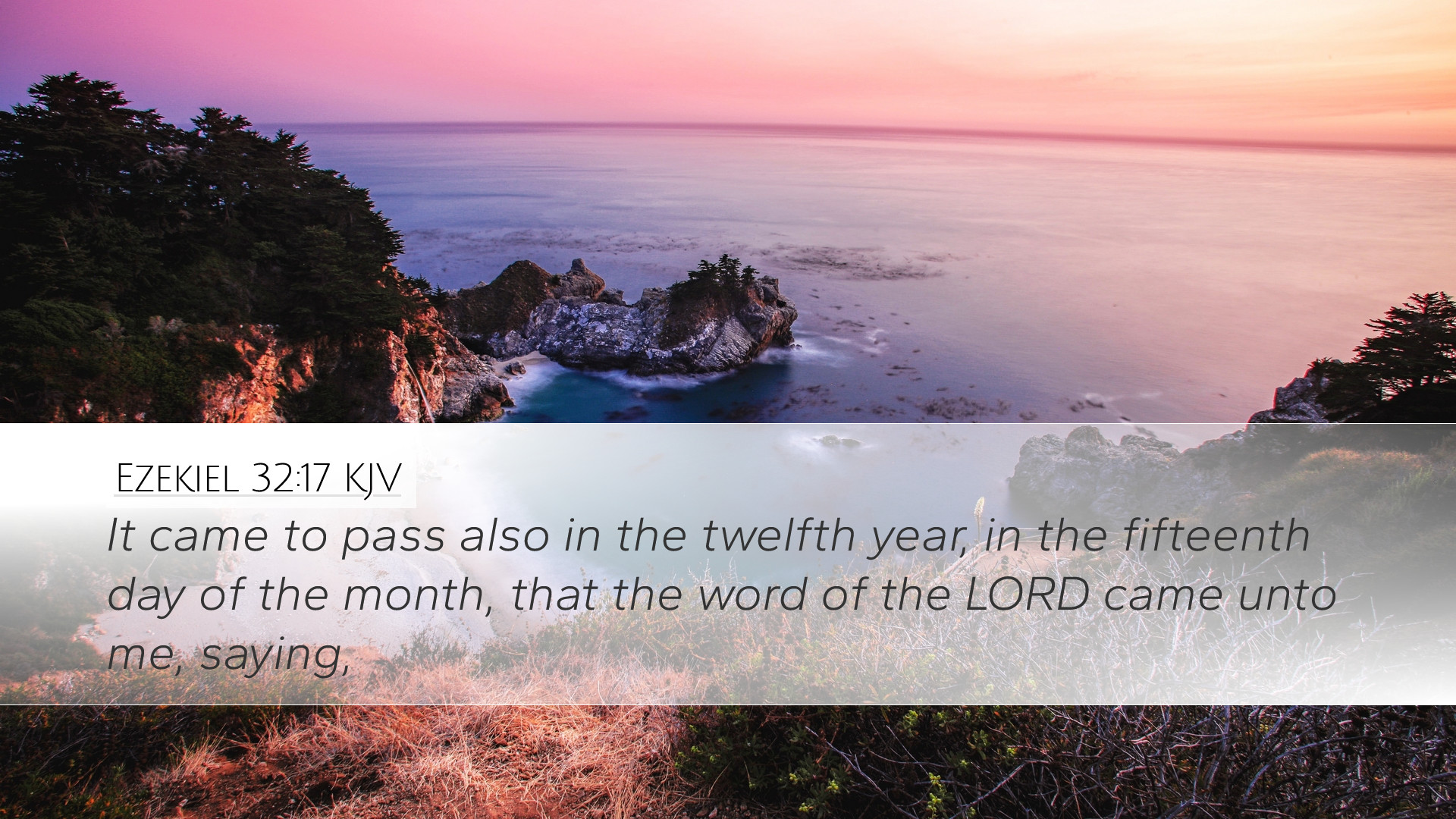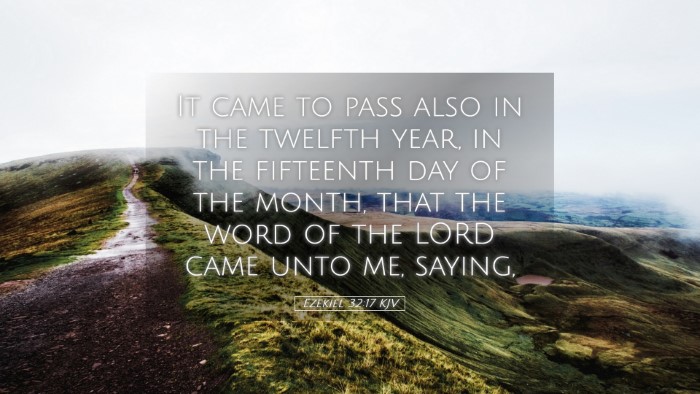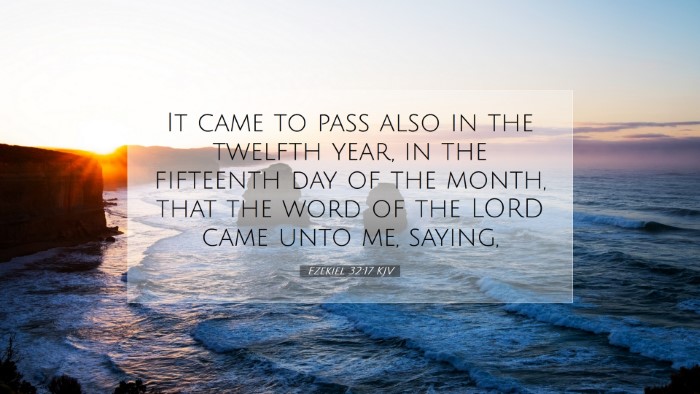Ezekiel 32:17 Commentary
Bible Verse: Ezekiel 32:17 - "It came to pass also on the fifteenth day of the month, which was the month of Abib, that the word of the Lord came unto me, saying,..."
Introduction
The prophetic book of Ezekiel contains profound messages about judgment, restoration, and the sovereignty of God. Chapter 32 specifically focuses on themes of judgment against Egypt, symbolizing their impending doom as a consequence of persistent rebellion and idolatry against God.
Contextual Analysis
This verse introduces a significant prophetic declaration during a critical moment when Ezekiel communicates God's message concerning Egypt. Historical context reveals that Judah was in distress, and their relationship with powerful nations like Egypt was deeply entwined in political and spiritual realms.
- Historical Context: The prophecy occurs around 586 B.C., following the fall of Jerusalem.
- Geopolitical Climate: Egypt, once a powerful ally, had become a source of false hope for Israel's leaders.
- Prophetic Significance: The message reflects God's sovereignty in the midst of Israel's plight and Egypt's arrogance.
Thematic Insights
Commentators like Matthew Henry and Albert Barnes emphasize the multifaceted themes that emerge from this verse:
- Judgment: This passage presents a clear declaration of judgment against Egypt for its pride and idolatry, aligning with the overarching narrative of God's justice.
- Hope for Israel: Amid the themes of destruction, there lies an implicit hope for Israel, suggesting that God is still in control and will ultimately restore them.
- God’s Sovereignty: The invocation of God speaking clearly illustrates His authoritative power over nations and their leaders.
Detailed Exegesis
Ezekiel 32:17 serves as a pivot point where God's messages encompass not just personal sin but also national transgressions. Adam Clarke expounds on the significance of the specific date mentioned, linking it to historical religious observances, thus grounding the prophetic message in a tangible timeline.
Message to the Prophets
Henry notes the burden placed on Ezekiel as a prophet. This was not merely communication but a calling to fulfill a divine mandate.
- Responsibility of Prophecy: Prophets are called to announce God’s will regardless of societal acceptance.
- Challenges of Prophecy: Impending reactions from Egypt and Israel posed a challenge to Ezekiel, yet his loyalty to divine instruction remained paramount.
Spiritual Significance
The deeper spiritual interpretation points to the human condition and the tendency to depend on worldly strength rather than divine assistance.
- Dependence on God: Israel's inclination towards Egypt is analogous to believers' tendencies to rely on worldly values.
- Foreshadowing Redemption: The prophetic destruction of Egypt foreshadows the eventual restoration of Israel, exemplifying God’s redemptive work.
Reflection for Today
For contemporary readers, Ezekiel 32:17 offers profound implications regarding trust in God versus reliance on temporal entities. Pastors and theologians can draw parallels between ancient Israel’s reliance on Egypt and modern believers' propensity to trust in secular solutions:
- Evaluating Dependencies: This text urges an examination of personal and communal dependencies. Are we leaning on God, or are we swayed by external pressures?
- The Call to Prophetic Action: As modern-day prophets, believers are called to speak boldly against sin and injustice, fostering hope amid despair.
- God’s Continual Sovereignty: A reaffirmation of God’s unchanging nature in guiding and protecting believers through turbulent times is crucial for faith sustenance.
Conclusion
Ezekiel 32:17 not only serves as a historical and prophetic moment but also resonates deeply with contemporary themes of judgment, hope, and the sovereignty of God. By examining the insights from public domain commentaries, one can glean a richer understanding of this verse and its implications for faith and practice today.
Final Thought: In facing societal challenges and personal trials, let us not turn to the 'Egypts' of our time but rather anchor ourselves firmly in God’s lasting promises.


